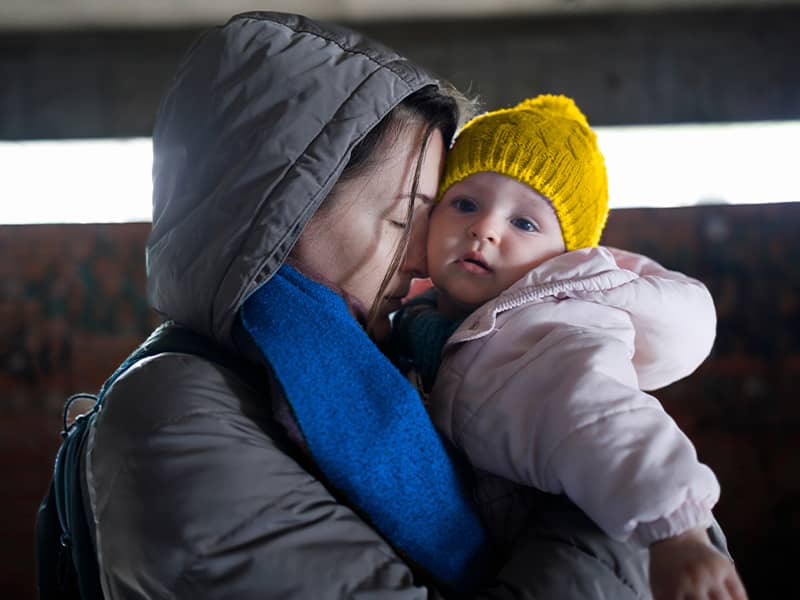For a century, the effects of war and assimilation had eroded the usage and culture of the language once spoken by millions of Jews from Vilnius to New York to Chicago. With only an estimated 500,000 speakers remaining today worldwide, the vivid and wry blend of German and Hebrew that gave English klutzes and chutzpah has long been predicted to share the fate of Catskills comics.
Now, spurred by renewed interest in ethnic Jewish identity and a fear of losing the language entirely, a small corps of preservationists is making vast strides in salvaging Yiddish books and recordings. University language programs in Yiddish are thriving, while growing communities of ultra-Orthodox Jews around the world are putting the language to use in grade schools and daily life.
These seeds of a Yiddish revival offer a rare bright spot in the winnowing of the world's tongues. Linguists expect half of the world's 6,000 existing languages to disappear within a century. "Twenty years ago, the idea that third- or fourth-generation [U.S.] Jews would be reclaiming the language was unheard of," said David Roskies, professor of Jewish literature at New York's Jewish Theological Seminary.
Most Yiddish preservationists have no fantasy of the language returning to its heyday at the turn of the 19th century, when New York City alone boasted seven Yiddish daily newspapers. Instead, they hope that saving once-imperiled literature and recordings will encourage future generations to maintain a thread of Jewish identity and culture that many had consigned to history.
The effort to save Yiddish has made particular progress in the past year, led by the completion in May of a four-year project to digitize thousands of books on the verge of disintegration. Created by the National Yiddish Book Center in Amherst, Mass., the $3.5 million project allows users who visit www.yiddishbooks.org to order any of 12,000 titles published since 1864.
The project, which is named for its lead sponsor, film director Steven Spielberg, has achieved what many scholars thought was impossible: It has preserved fully three-quarters of all Yiddish titles ever published. "One is tempted to use the word miraculous," said Ruth Wisse, a Harvard University professor of Yiddish and comparative literature
Dating to the 10th century, Yiddish fuses Germanic dialects and Hebrew script in what became the leading vernacular of European Jews. Immigrants brought it to the United States, along with a rich tradition of literature, theater, and journalism, led by such writers as Sholem Aleichem and I.L. Peretz.
During World War II, half of the world's 11 million Yiddish speakers were killed by the Nazis and their allies. Among Jews who settled in the U.S. and Western Europe, Yiddish faded fast in the mill of assimilation.
Yiddish has always maintained a foothold in ultra-Orthodox communities, mostly in New York, Chicago, and Jerusalem--and today, some of those communities are growing fast. Of greater surprise to Yiddish experts, however, is the growing interest among less religious Jews.
Enrollment in Yiddish-language programs has grown steadily over the past two decades at many secular universities, including Columbia and Oxford, said Professor Jeremy Dauber, director of Columbia's Yiddish Studies Program. "These young people ... are doing it because it is a way of getting in touch with a culture that they are a part of but ... has rapidly disappeared," he said.
Indeed, for many, Yiddish echoes with the early years of Jewish life on the lower east side of Manhattan and Maxwell Street in Chicago, when parents privately doted on children in Yiddish, but publicly downplayed Jewish roots in exchange for acceptance.
To its protectors, Yiddish captures the heart of being Jewish - a language of "quiet humor" and "frightened and hopeful humanity," as the writer Isaac Bashevis Singer put it. It has a richness that English can't help but borrow: mensches for decent and good-hearted folks; mitzvahs for blessings and other things we admire; shlock for things we don't.
"Like for a lot of people, discovering Yiddish for the first time showed me what it means to be Jewish," said radio producer David Isay. "For years, I think, everyone wanted to close the door on Yiddish, but it's scrappy," Isay, co-creator of the New York Based Yiddish Radio Project, said. "It doesn't give up."

